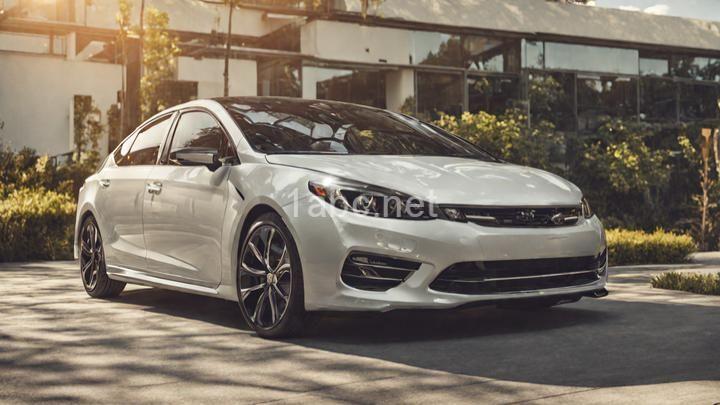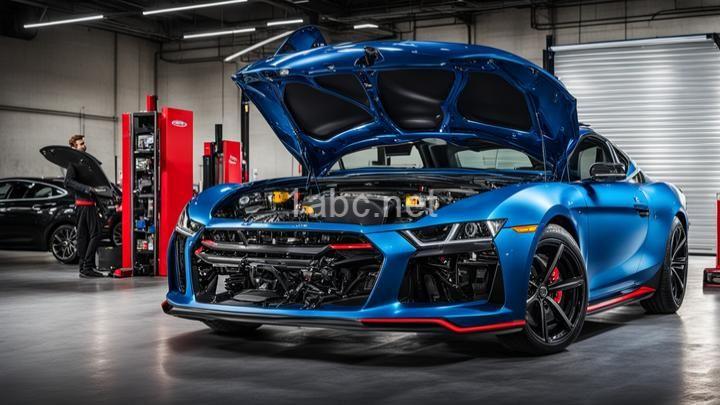How to Save Money on Gas with Fuel-Efficient Cars

Introduction:
Are you tired of spending a fortune on gas? We understand how frustrating it can be to see your hard-earned money go up in smoke every time you fill up your tank. That's why in this blog post, we will share some valuable tips and tricks on how to save money on gas with fuel-efficient cars. By choosing a fuel-efficient car, maintaining it properly, adopting eco-friendly driving habits, minimizing extra weight and drag, and utilizing fuel-saving technologies, you can significantly reduce your expenses at the pump. So let's dive in and start saving money on gas today!
I. Choose a Fuel-Efficient Car:
When it comes to saving money on gas, owning a fuel-efficient car is the first step in the right direction. These vehicles are designed to maximize fuel efficiency and minimize the amount of gas needed to travel the same distance. The benefits of owning a fuel-efficient car go beyond just saving money on gas. They also contribute to reducing greenhouse gas emissions and help preserve the environment.
To choose a fuel-efficient car, it's essential to research and compare different models' fuel efficiency ratings. Look for vehicles that have high miles per gallon (MPG) ratings, as this indicates better fuel efficiency. You can find this information on the official Environmental Protection Agency (EPA) website or by checking the window sticker on the car. Popular fuel-efficient car models include the Toyota Prius, Honda Civic, and Ford Fusion Hybrid, among others.
II. Maintain Your Vehicle:
Maintaining your car properly is crucial for optimal fuel efficiency. Regular maintenance ensures that your car is running at its best and helps prevent any issues that may lead to increased fuel consumption. Here are some tips for maintaining your vehicle:
-
Regular oil changes: Engine oil lubricates the moving parts of your car's engine, reducing friction and ensuring smooth operation. Regular oil changes help maintain engine efficiency and improve fuel economy.
-
Tire rotations: Rotating your tires regularly helps distribute wear and tear evenly, ensuring that they last longer and provide better fuel efficiency. It's recommended to rotate your tires every 5,000 to 7,000 miles.
-
Air filter replacements: A clean air filter allows for proper airflow to the engine, improving fuel combustion and efficiency. Check your air filter regularly and replace it when it becomes dirty or clogged.
-
Proper tire inflation: Underinflated tires can increase fuel consumption by causing more rolling resistance. Keep your tires properly inflated according to the manufacturer's recommendations to maximize fuel efficiency.
III. Adopt Fuel-Saving Driving Habits:
Your driving habits have a significant impact on your vehicle's fuel efficiency.
By adopting eco-friendly driving techniques, you can maximize fuel efficiency and save money on gas. Here are some tips to consider:
-
Avoid rapid acceleration and braking: Aggressive driving, such as rapid acceleration and braking, burns more fuel. Accelerate and decelerate smoothly to improve fuel economy.
-
Use cruise control when appropriate: Cruise control helps maintain a consistent speed, which can improve fuel efficiency on long highway journeys.
-
Reduce idling time: Idling consumes fuel unnecessarily. If you anticipate waiting for more than a minute, it's more fuel-efficient to turn off your engine and restart it when you're ready to go.
-
Plan routes efficiently and avoid traffic congestion: Planning your routes ahead of time can help you avoid traffic congestion and stop-and-go traffic, which negatively impacts fuel efficiency. Utilize GPS or traffic apps to find the most efficient routes.
IV. Minimize Extra Weight and Drag:
Additional weight in your car and poor aerodynamics can lead to increased fuel consumption.
By decluttering your vehicle and improving its aerodynamics, you can maximize fuel efficiency. Consider the following suggestions:
-
Remove unnecessary items: Extra weight in your car means your engine has to work harder and burn more fuel. Remove any items that you don't need, such as heavy tools or equipment.
-
Streamline your car's exterior: Reduce drag and improve aerodynamics by removing roof racks, bike racks, or other attachments when not in use. This helps your car cut through the air more efficiently, reducing fuel consumption.
V. Utilize Fuel-Saving Technologies and Apps:
In addition to choosing a fuel-efficient car and adopting smart driving habits, there are other strategies you can employ to save money on gas. Consider the following:
-
Hybrid or electric vehicles: Hybrid and electric vehicles offer even greater fuel efficiency and reduced reliance on gasoline. If possible, consider investing in these eco-friendly options.
-
Fuel-saving apps: There are numerous mobile apps available that help you find the best gas prices in your area. Utilize these apps to locate the cheapest gas stations nearby and save money on each fill-up.
Conclusion:
By following these tips and tricks, you can significantly reduce your expenses at the pump while also contributing to a greener environment. Choose a fuel-efficient car, maintain it properly, adopt fuel-saving driving habits, minimize extra weight and drag, and utilize fuel-saving technologies and apps. Remember, every small action counts in the quest for saving money on gas and reducing your carbon footprint. Start implementing these strategies today and share your experiences in the comments section below. Happy driving!
FREQUENTLY ASKED QUESTIONS
How can fuel-efficient cars help me save money on gas?
Fuel-efficient cars can help you save money on gas in several ways. First, these cars are designed to use less fuel, which means you will spend less money at the pump. This can result in significant savings over time, especially if you drive long distances or have a long commute.Additionally, fuel-efficient cars often have features that help you maximize your fuel economy. For example, they may come equipped with an eco-mode or a start-stop system that automatically shuts off the engine when the car is idle, such as at a stoplight. These features can help reduce fuel consumption and ultimately save you money.
Moreover, many fuel-efficient cars are also equipped with hybrid or electric technology. Hybrid cars combine a traditional combustion engine with an electric motor, while electric cars run solely on electricity. Both types of vehicles can significantly reduce your reliance on gasoline and, as a result, lower your fuel costs.
Furthermore, fuel-efficient cars are often lighter and more aerodynamic, which can improve their overall efficiency. By reducing drag and weight, these cars require less energy to move, resulting in better fuel economy and cost savings.
In summary, fuel-efficient cars can help you save money on gas through their ability to use less fuel, their fuel-saving features, their hybrid or electric technology, and their improved overall efficiency. Making the switch to a fuel-efficient car can lead to long-term savings and contribute to a more sustainable future.
Are fuel-efficient cars more expensive to buy?
Fuel-efficient cars can vary in price depending on several factors. While it is true that some fuel-efficient cars may have a higher initial price compared to their less fuel-efficient counterparts, this is not always the case. In recent years, the cost of fuel-efficient technology has decreased, making these vehicles more affordable.Additionally, it's important to consider the long-term savings that fuel-efficient cars can offer. These vehicles typically have lower fuel consumption, resulting in reduced trips to the gas station and lower fuel expenses over time. This can help offset the initial higher cost of purchasing a fuel-efficient car.
It's also worth noting that there are various types of fuel-efficient vehicles available, ranging from hybrids to fully electric cars. Each type has its own price range, with electric cars generally being more expensive due to the cost of their advanced battery technology.
Ultimately, the price of a fuel-efficient car will depend on the specific model, brand, and features you choose. It's always a good idea to research and compare prices to find the best option that suits your budget and preferences.
What are some popular fuel-efficient car models?
There are several popular fuel-efficient car models available on the market today. Here are a few options to consider:
-
Toyota Prius: The Prius is one of the most well-known hybrid cars and is renowned for its exceptional fuel efficiency. With its combination of a gasoline engine and an electric motor, it offers impressive mileage per gallon.
-
Honda Accord Hybrid: The Accord Hybrid combines a gasoline engine with an electric motor, providing excellent fuel economy without sacrificing performance. It offers a smooth and comfortable ride, making it a popular choice among eco-conscious drivers.
-
Chevrolet Bolt EV: If you're looking for an all-electric vehicle, the Bolt EV is worth considering. It has a long electric range, making it convenient for daily commutes and even longer trips. Its compact size and fun-to-drive nature make it a practical and eco-friendly choice.
-
Hyundai Ioniq: The Ioniq is available in hybrid, plug-in hybrid, and all-electric versions, offering buyers a range of options based on their needs. Its aerodynamic design and advanced technology contribute to its impressive fuel efficiency.
-
Tesla Model 3: The Model 3 is Tesla's most affordable electric car and has gained popularity for its sleek design, long electric range, and impressive performance. It offers a luxurious driving experience while being environmentally friendly.
These are just a few examples of fuel-efficient car models available today. It's always a good idea to research and test drive different models to find the one that best suits your needs and preferences.
Are there any government incentives for purchasing a fuel-efficient car?
Yes, there are government incentives available for purchasing a fuel-efficient car. These incentives are designed to encourage individuals to choose vehicles that have a lower impact on the environment and reduce their carbon footprint. The specific incentives can vary depending on the country and region, but some common examples include tax credits, rebates, and grants. These incentives can help offset the initial cost of purchasing a fuel-efficient car and make it more affordable for consumers. It's always a good idea to check with your local government or environmental agencies to see what incentives are available in your area. Happy car shopping!




